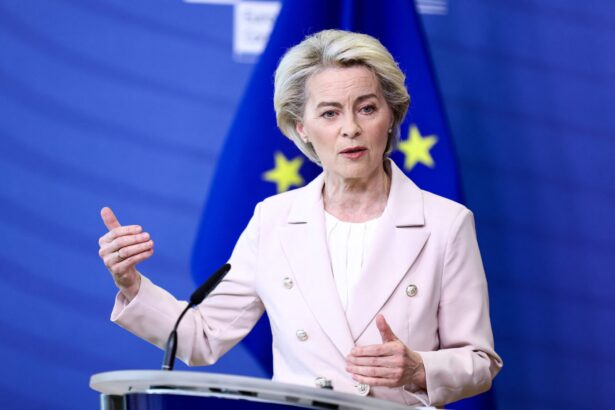KYIV/BRUSSELS, (Reuters) – The European Union proposed its toughest sanctions yet against Russia today, including a phased oil embargo, as Kyiv said Moscow was intensifying an offensive in eastern Ukraine and close Russian ally Belarus announced large-scale army drills.
Nearly 10 weeks into a war that has killed thousands of people, uprooted millions and flattened Ukrainian cities, Russia was intensifying its assault, Ukraine’s defence ministry said, with nearly 50 air strikes carried out yesterday alone.
Russia also stepped up strikes on targets in western Ukraine, saying it was disrupting Western arms deliveries.
A new convoy of buses began evacuating more civilians from the ravaged southeastern port city of Mariupol, which has seen the heaviest fighting of the war so far and where Moscow said remaining Ukrainian forces remained tightly blockaded.
Piling pressure on Russia’s already battered $1.8 trillion economy, Brussels proposed phasing out imports of Russian crude oil within six months and refined products by the end of this year.
“(President Vladimir) Putin must pay a price, a high price, for his brutal aggression,” European Commission chief Ursula von der Leyen told applauding EU lawmakers in Strasbourg.
The plan, if agreed by all 27 EU governments, would follow U.S. and Britsh oil bans and be a watershed for the world’s largest trading bloc, which remains dependent on Russian energy and must find alternative supplies.
U.S. President Joe Biden said he would speak to other Group of Seven leaders this week about possible further steps against Moscow. “We’re always open to additional sanctions,” Biden told reporters in Washington.
Ukraine’s Foreign Minister Dmytro Kuleba welcomed the news from Brussels, but stressed the urgency of acting to starve Russia’s war machine.
“Don’t get me wrong, we welcome that, but for six more months the EU countries will pay Russia billions of euros,” he told Austrian TV channel Puls 4 in an interview.
“My position is simple: every euro paid to Russia for gas, oil or other goods ends up as rounds of ammunition in Ukraine to kill my compatriots,” he said. In a separate interview with Sky news, Kuleba called for modern tanks and multiple launch rocket systems to protect territory.
While a number of eastern EU members seek more time to adapt, a source said EU envoys could reach a deal on Thursday or later this week on the plan, which also targets Russia’s top bank, its broadcasters, and hundreds more individuals.
The EU has yet to target Russian natural gas, used to heat homes and generate electricity across the bloc, and harder to replace than Russian crude.
The Kremlin said Russia was weighing various responses to the EU plans, adding that the sanctions would be costly for European citizens.
On the war front, Russian Defence Minister Sergei Shoigu renewed a warning that Moscow would seek to hit U.S and NATO shipments of weapons into Ukraine.
His ministry said Russian forces disabled six railway stations used to deliver Western arms to Ukraine’s east. It later said it hit 77 military targets throughout the day, including ammunition depots and artillery.
Ukrainian authorities said Russian strategic bombers fired 18 rockets “with the aim of damaging our country’s transport infrastructure” and confirmed an attack on the railways.
Announcing surprise military drills, Belarus’s defence ministry said they posed no threat to neighbours, but Ukraine’s border service said it could not rule out that Belarusian forces might join Russia’s assault.

